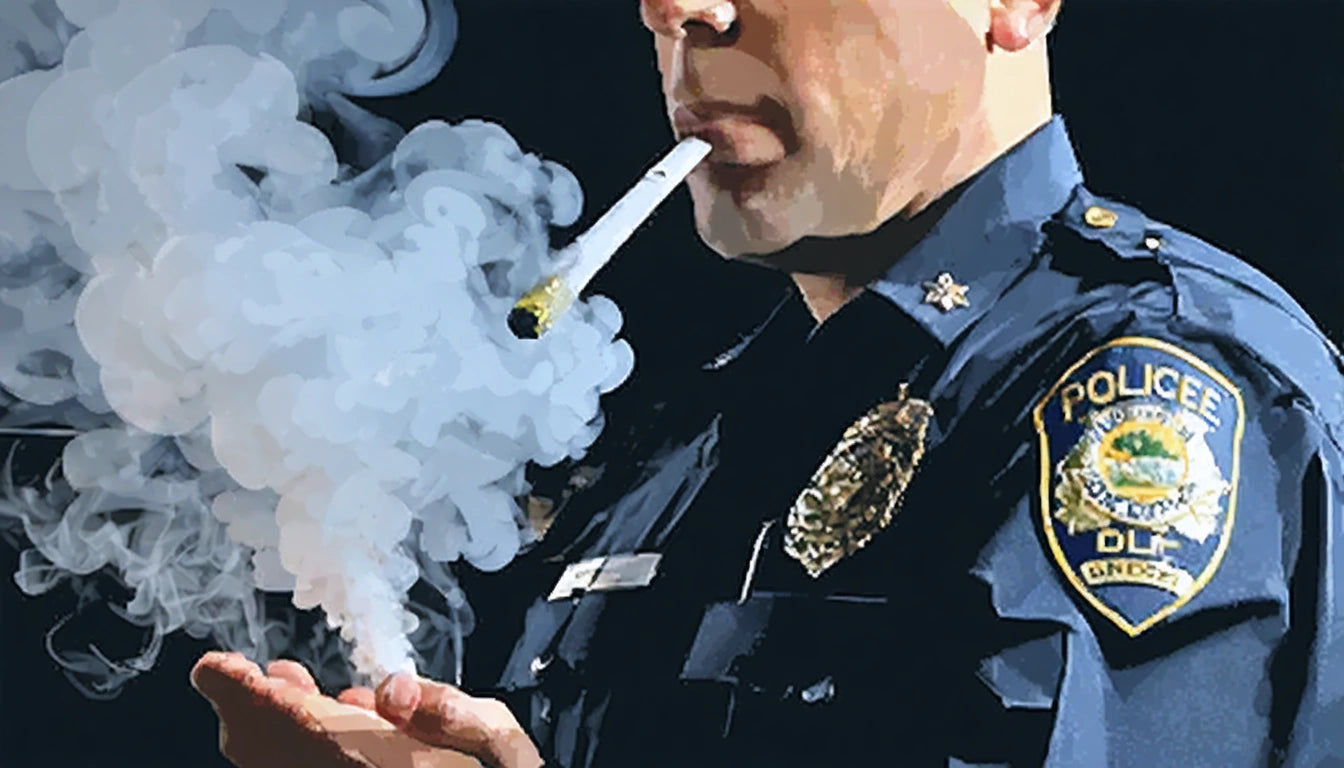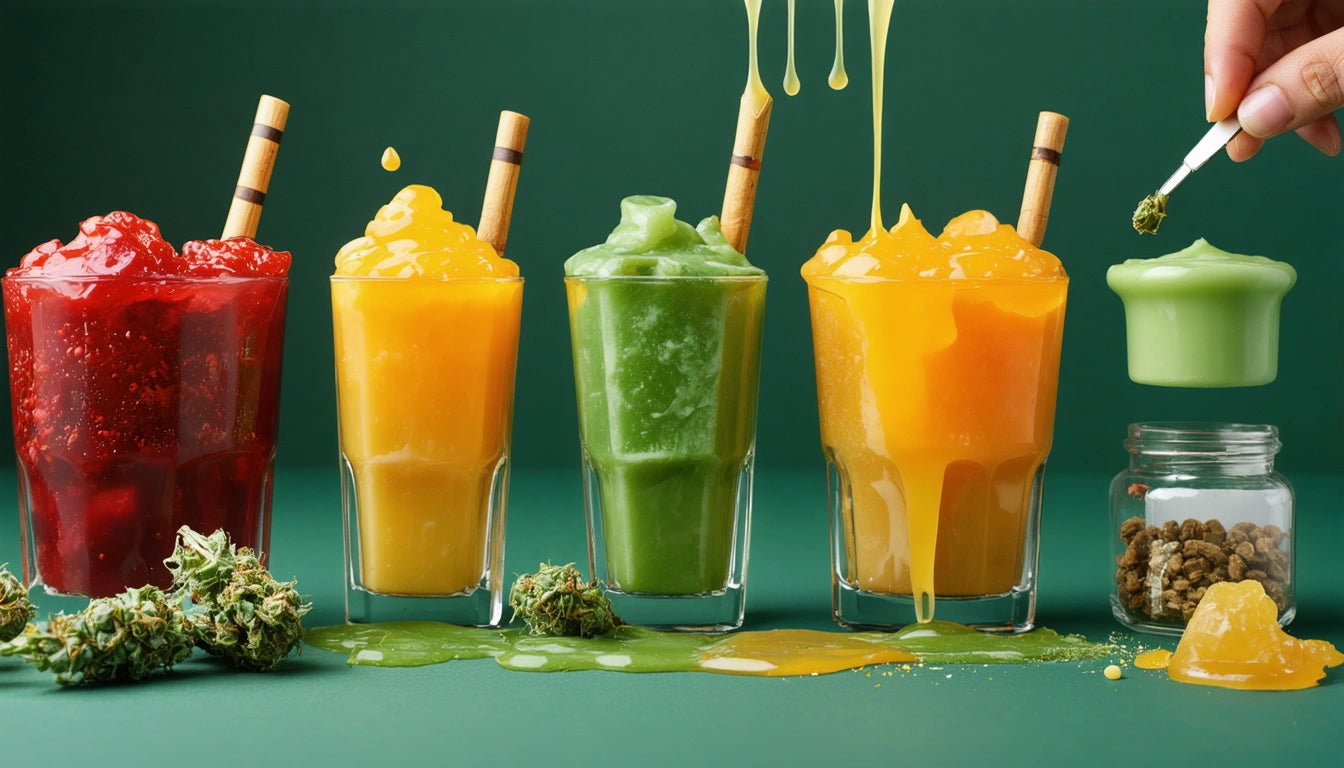Table of Contents
Can Police Officers Legally Smoke Weed Off Duty?
As cannabis legalization expands across the United States, a complex question emerges for those in law enforcement: can police officers smoke weed off duty in states where recreational use is legal? This question sits at the intersection of state legalization, federal prohibition, department policies, and the unique responsibilities of law enforcement professionals.
Federal vs. State Laws: The Legal Contradiction
The fundamental challenge for police officers considering off-duty cannabis use stems from the conflict between state and federal law. While many states have legalized recreational marijuana, cannabis remains a Schedule I controlled substance at the federal level.
Law enforcement officers are in a particularly difficult position because they are sworn to uphold both state and federal laws. According to this analysis of legal professionals and marijuana use, this creates an inherent conflict when state law permits an activity that federal law prohibits.
Additionally, most police departments receive federal funding, which often requires compliance with federal drug-free workplace policies. This financial relationship further complicates the legal landscape for officers considering off-duty use.
Department Policies and Testing Procedures
Regardless of state legalization status, individual police departments typically maintain strict policies regarding substance use. These policies generally fall into several categories:
- Zero-tolerance policies that prohibit any cannabis use, on or off duty
- Policies that follow federal guidelines and prohibit use regardless of state law
- Policies that specifically address off-duty use in legal states
- Testing protocols that screen for recent or past cannabis use
Most departments continue to conduct drug testing as part of pre-employment screening, random testing programs, and after specific incidents. Unlike alcohol, which metabolizes quickly, THC can remain detectable in the body for weeks after use, making it difficult to distinguish between on-duty and off-duty consumption.
This testing challenge creates significant risks for officers in legal states, as explained in this overview of cannabis use in high-responsibility professions. Even when used legally off duty, cannabis could trigger a positive drug test days or weeks later.
State-by-State Variations in Police Cannabis Policies
California's Approach
California, despite its progressive cannabis laws, has not created broad protections for police officers who use cannabis off duty. Most departments in the state maintain policies prohibiting use, though some municipalities have begun reconsidering these stances.
Other Legal States
In Colorado, Washington, and other early-adopting states, police departments have largely maintained prohibitions on officer cannabis use. However, the growing labor shortage in law enforcement has prompted some agencies to reconsider these policies to expand their applicant pools.
Some departments have modified their stance on prior cannabis use during the hiring process while still prohibiting current use. This shift recognizes the changing social attitudes toward cannabis while maintaining operational standards.
Similar to how regulatory frameworks for controlled substances have evolved over time to balance access with safety concerns, police department policies on cannabis are slowly adapting to new social realities while prioritizing public safety.
Legal Protections and Employment Rights
Some states have enacted employment protections for legal cannabis users, but these protections typically include exceptions for safety-sensitive positions, which usually encompass law enforcement.
For example, Nevada and New York have passed laws protecting workers' off-duty cannabis use, but both include carve-outs for positions where impairment could pose safety risks. Police officers almost universally fall within these exceptions.
The courts have generally sided with police departments in cases challenging cannabis prohibitions. In most rulings, judges have recognized the unique responsibilities of law enforcement and the legitimate interest departments have in maintaining drug-free workforces.
As noted in this overview of public marijuana smoking laws, the legal landscape continues to evolve, but change comes slowly in professions with public safety responsibilities.
Future Implications for Law Enforcement Cannabis Use
Several factors may influence future policies regarding police officers and off-duty cannabis use:
- Development of more accurate impairment testing that can distinguish between recent use and past use
- Potential federal rescheduling or legalization of cannabis
- Growing acceptance of cannabis use across professional sectors
- Continued research into cannabis effects on cognition and performance
- Labor shortages in law enforcement creating pressure to relax certain hiring standards
Until federal law changes, most police officers face significant professional risk if they choose to use cannabis, even in legal states and while off duty. The consequences can include disciplinary action, termination, and potentially career-ending impacts.
For officers in states with legal cannabis, the safest approach remains following department policy, which in most cases prohibits use. Those considering cannabis use for medical purposes should consult with their department's human resources and review applicable policies regarding medical accommodations.
As society's relationship with cannabis continues to evolve, so too will the policies governing its use by those in positions of public trust and safety. However, this evolution will likely proceed cautiously, with public safety remaining the primary consideration in policy development.











Leave a comment
All comments are moderated before being published.
This site is protected by hCaptcha and the hCaptcha Privacy Policy and Terms of Service apply.